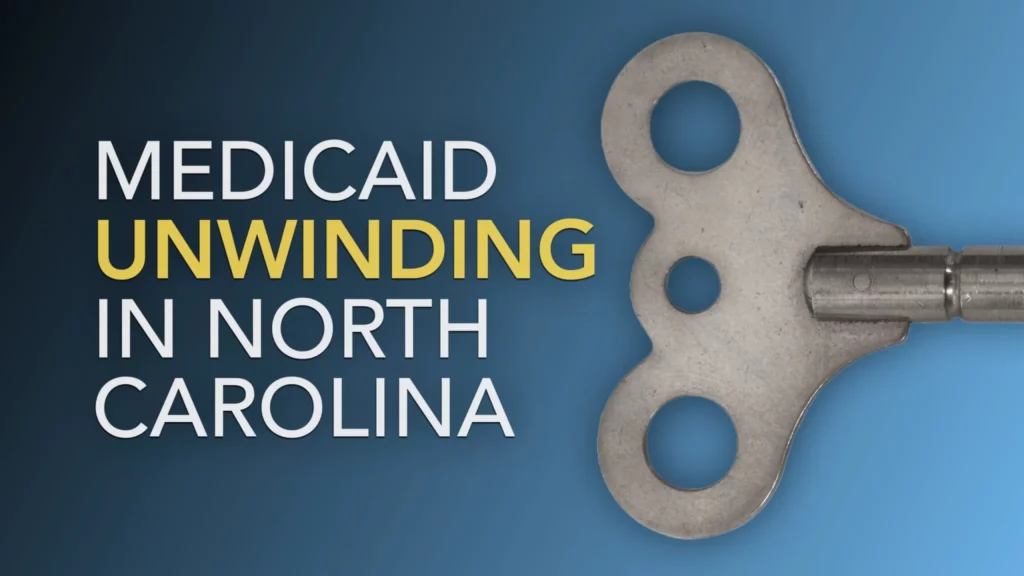Page last updated on Feb. 7, 2024
Ver información en Español
Did your federal income tax return for last year indicate that you had health insurance coverage through the Marketplace (also referred to as Obamacare, Healthcare.gov and Affordable Care Act) and/or you owe IRS a repayment of premium tax credit, but you did not sign up for coverage?
If you were enrolled in a health plan in the Marketplace by another person (an insurance agent or broker) without your consent and knowledge, you should report this to the Marketplace and submit the claim for agent fraud.
On this page, you can find information on the following topics:
North Carolina residents, if you would like assistance with this process, our Health Insurance Navigators can provide you with free help.
Mecklenburg, Cabarrus and Union Co. residents, please call 980-256-3782
North Carolina residents in other counties, please call 1-855-733-3711
Visit ncnavigator.net
Next steps to follow if you were enrolled in a plan on the Health Insurance Marketplace without your consent
- Call the Health Insurance Marketplace (aka Obamacare) Call Center at 1-800-318-2596 to find the status of your enrollment. Even if you did not sign up of your own will, you may owe the IRS money back for premium tax credits you received.
- If the Marketplace reports you did not have coverage in 2022 and/or 2023, there is nothing else you need to do.
- If the Marketplace confirms you had coverage that you did not consent to AND you did not use this coverage for your doctor or hospital visits, follow these steps:
- Ask the Marketplace representative to cancel/terminate any current active coverage you were fraudulently enrolled in, so that you do not continue receiving premium tax credits that you may not be eligible for.
- Contact an Affordable Care Act Health Insurance Navigator to assist you with reporting your enrollment without a consent to the Center for Medicaid and Medicare, the federal government agency overseeing Marketplace, and to submit an agent fraud claim so that your coverage may be terminated retroactively (which would allow you to cancel your entire coverage from the original issue date). To receive assistance from a Health Insurance Navigator, call 980-256-3782 (Mecklenburg, Cabarrus and Union Co. residents) or 1-855-733-3711 (NC residents in other counties) for free assistance.
- Next, the Marketplace Complex Case Help Center will investigate your claim. Only Navigators can submit this form, but both you and your Navigator will receive a call as part of this investigation in the days after submitting the agent/broker fraud. Upon investigation, you will be informed of the outcome and the next steps.
- Depending on the fraud claim outcome, you may receive an amended 1095A tax form that you may need to file with your federal income tax return. Make sure the Marketplace has the correct mailing address for you. Charlotte Center for Legal Advocacy Low-Income Taxpayer Clinic may be able to provide guidance with tax questions regarding your 1095A form. You can contact the clinic at 980-202-7329.
- It is recommended that you file an agent fraud claim with the NC Department of Insurance as well. Visit ncdoi.gov or call 919-807-6840 (Toll-Free 888-680-7684). Your Navigator can assist you with this process.
- If you believe your identity has been stolen, you should report it to IdentityTheft.gov.
- If you have questions about this process, want assistance or just want to understand your options for health coverage, Affordable Care Act Health Insurance Navigators can help. Call 980-256-3782 (Mecklenburg, Cabarrus and Union Co. residents) or 1-855-733-3711 (NC residents in other counties) for free assistance.
Who are Health Insurance Navigators and how can they help me with this process?
Health Insurance Navigators are licensed by the Center for Medicaid and Medicare, a federal agency that also administers Health Insurance Marketplace. Their services are FREE for everyone, and they do not get any financial incentives for their assistance. They help consumers understand what health options they are eligible for and assist with enrollment in Medicaid and Marketplace coverage. They cannot choose a health plan for you but can help answer questions about health coverage and guide a consumer through the enrollment process. Navigator services include reasonable accommodations for non-English speaking consumers or consumers with visual, hearing, or other impairments with no cost to consumers.
Are Health Insurance Navigators the same as an insurance agent or a broker?
No, Health Insurance Navigators are not an insurance agent or broker. Navigators are federally licensed and provide free, unbiased help to consumers to help individuals understand their health options eligibility and assist with enrollment in Medicaid and Marketplace coverage. Navigators can also assist with processes concerning the Health Insurance Marketplace, such as enrollment in a plan without consent. Navigators receive no direct compensation for assisting an individual with the Health Insurance Marketplace or Medicaid.
Why is it important to report fraudulent enrollment in Marketplace coverage?
Every time someone applies for coverage through Marketplace, they are also applying for government financial assistance through advance premium tax credit to help lower your monthly health insurance payment (or “premium”). Advance Premium Tax Credit is approved based on the estimate of your expected income, the tax filing status, and other criteria for the year you will have coverage. This is reported on your Marketplace application.
If you qualify for a premium tax credit based on your estimate, tax filing status, and ineligibility for other health coverage, you can use it to lower the cost of your monthly premium for the plan you enrolled in.
You are legally required to file a federal income tax return for the year you had Marketplace coverage and reconcile the advance premium tax credit with your actual income for that year:
- If at the end of the year you have received more premium tax credit than you are due based on your final income, you will have to pay back the excess when you file your federal tax return.
- If you have received less than you qualify for, you will get the difference back.
If you were eligible for premium tax credits when you had coverage on Marketplace and you received the correct amount, all you need to do is submit this information with your tax return.
There are several reasons someone is not eligible for premium tax credits, for example you may not have an eligible immigration status, or you had an offer of or enrolled in an employer sponsored insurance (some exceptions apply). If you were eligible/ enrolled in Medicaid, Medicare, or other health coverage that meets the minimum essential coverage requirement, you WERE NOT eligible for premium tax credits.
What is not a fraudulent enrollment?
You cannot claim that you were fraudulently enrolled in a Marketplace health plan if:
- You agreed to be enrolled in Marketplace plan after you talked to a health insurance agent or broker.
- You willingly enrolled into the Marketplace plan with the help of an agent/broker, but later changed your mind and decided you do not want this coverage.
- You used your Marketplace health plan at any point to cover the cost of any medical services provided during the coverage year to you or any other tax household member listed on your Marketplace application.
- Your health plan premium cost was not fully subsidized (you were paying a portion of the premium).
What If I was enrolled in health coverage on Marketplace without my consent, but now I want to keep it?
If you have been enrolled without consent to a Marketplace health plan for 2024 and you decide that you may want to keep that plan, you should:
- Ask the Marketplace representative for the details of the plan (monthly premium, deductible amount, copays amount, out-of-maximum amount for 2024) so that you can understand the cost of this coverage and make an informed decision.
- Ask the representative to update your 2024 application to make sure you report any offer of insurance elsewhere (employer sponsored insurance, Medicare, Medicaid, TRICARE or VA Healthcare, etc..), your accurate tax filing status and your income for coverage year to make sure you will receive an accurate premium tax credit to lower you monthly premium. *Please note that if you are legally married you will need to include your spouse’s income on the Marketplace application and file jointly with your spouse for the year you had coverage, even if you do not live with your spouse. Some exceptions apply.
- If your employer offers health insurance, you are not eligible to be on Marketplace and receive premium tax credit unless the lowest premium cost of the plan your employer offers is more than 8.39% of your income.
- If you already enrolled in health insurance offered by your employer (or are eligible for any other minimum essential coverage, e.g., Medicaid, Medicare, or TRICARE), you are NOT eligible for Marketplace coverage and you should immediately cancel the Marketplace plan you were enrolled in for 2023. Otherwise, you may have to re-pay your premium tax credit when you file taxes.
- Make sure Marketplace has correct contact information to mail you your 1095A for 2024 coverage.
- Use your 1095A to reconcile any premium tax credits you received on your federal tax return.





